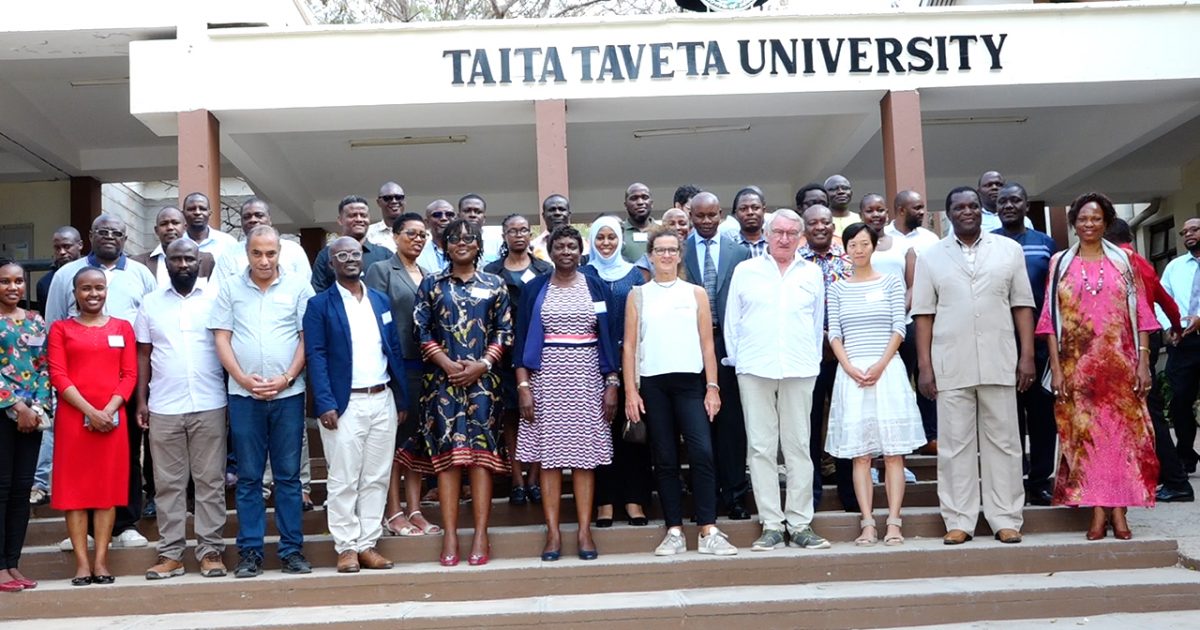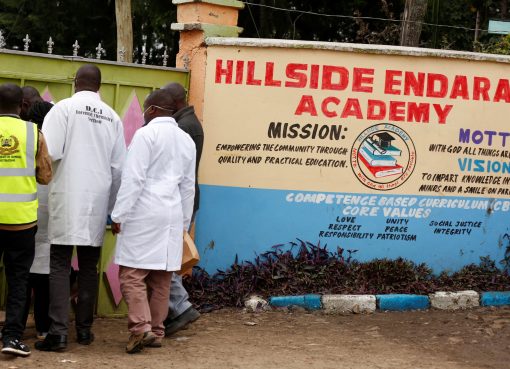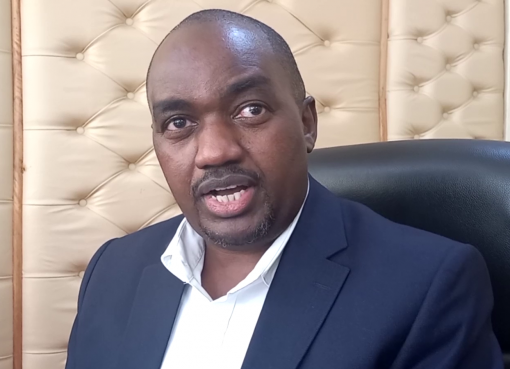Taita Taveta University is hosting a week-long workshop organized by the German Academic Exchange Service (DAAD), gathering alumni and current students to discuss advancements in engineering, education and workforce development.
The event comes at a pivotal time as Kenya and Germany deepen collaboration following a recent agreement on labor mobility, signaling new opportunities for Kenyan professionals on the global stage.
Speaking during the opening of the weeklong workshop at the University’s grounds at Voi, Prof. Simiyu Barasa, the Vice Chancellor of Taita Taveta University, emphasized the university’s role in training mining engineers.
He noted that partnerships with German universities have enabled the institution to offer comprehensive academic programs, including bachelor’s, master’s, and Kenya’s first PhD in mining engineering.
“We don’t have enough expertise in the country. Through this program and the assistance of the German Academic Exchange Service (DAAD), we can get professors from Germany to come here to teach on short notice, to teach our programs online, and to supervise our senior students. Because of that, we now have a high complement of staff,” he noted.
Prof Barasa noted that the government lacks sufficient funds to adequately equip labs and workshops.
However, through such programs, the VC disclosed that the institution has substantially improved with the extensive infrastructure enhancements it has received and continues to benefit from.
“As a government, we do not have sufficient funds to equip our labs and workshops, but courtesy of the support we have received from the German government through DAAD and this program, you can visit our workshops, and you’ll see the enormous infrastructure that we have been able to receive, and we continue receiving,” said Barasa.
Prof Barasa highlighted that these collaborations are improving Kenya’s education sector and positioning graduates for international opportunities, especially in light of the recent labor agreement between the two countries.
“Every year, we take several students up to 26 to Germany for a summer study program. This exchange allows our students to gain global exposure and skills, which are critical now that Kenyan professionals have more access to international job markets, thanks to the labor mobility agreement,” said Barasa.
Kenya and Germany recently signed a landmark agreement to share labor, talent, and mobility. This initiative is expected to create job opportunities for Kenyan professionals in Germany.
The deal also facilitates the mutual recognition of professional qualifications, making it easier for Kenyan workers, including engineers, to secure employment abroad.
Dr. Dorothee Weyler, Regional Director of DAAD, highlighted the importance of these collaborations, stating that the workshop is part of a broader mission to support African universities and equip students with skills that make them competitive in the global market.
She encouraged local universities to use European Union funding opportunities to sustain these educational initiatives.
“What I really want to encourage the people here on the ground, together with their German partners, is to use the European Union’s money, which will increase dramatically in the next few years, to support this region. And there, we also have particular funding for mobility and institutional support within the Erasmus Plus program,” said Weyler.
She added that, “We support master’s or PhD training or programs not only for Kenyans but also for others in Kenya or abroad, but in sub-Saharan Africa. We select particular courses to ensure the quality of this program so that the money is well invested.”
Prof. Jan Bongaerts from Technische Universität, Freiberg, highlighted the importance of lifelong learning, stating that these seminars serve as a cornerstone for graduates to reconnect, share experiences, and discuss the real-world impact of their education.
“Our seminars allow graduates to reconnect, share experiences, and discuss the real-world impact of their education,” he said.
Bongaerts emphasized that the program’s success is evident in the number of graduates now holding significant local and international positions.
As the partnership between Taita Taveta University and DAAD grows, Kenya and Germany’s recent labor mobility agreement signals even greater opportunities for Kenyan graduates.
With enhanced training and international exposure, these students are better equipped to meet both local and international demands, paving the way for a new era of global professional mobility.
By Arnold Linga Masila





